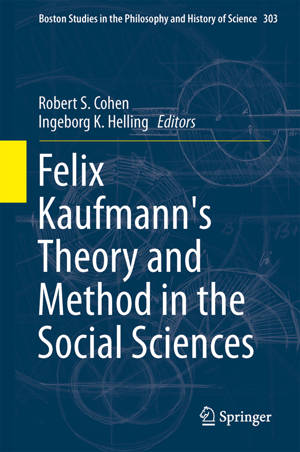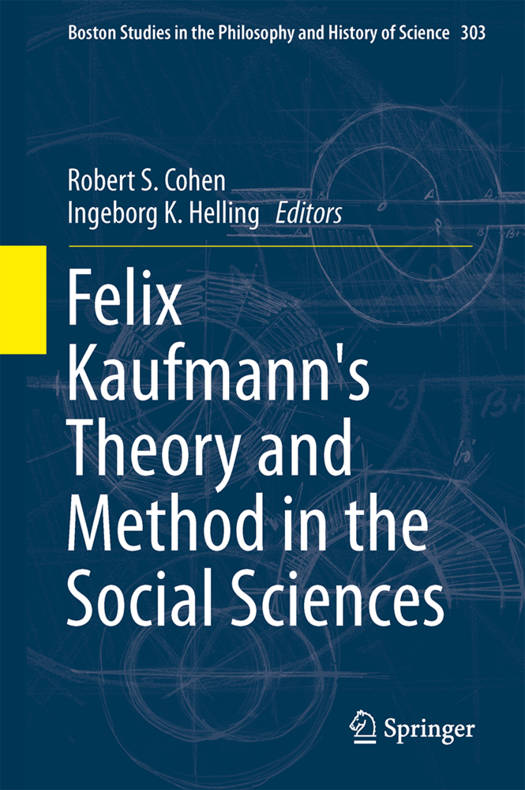
Bedankt voor het vertrouwen het afgelopen jaar! Om jou te bedanken bieden we GRATIS verzending (in België) aan op alles gedurende de hele maand januari.
- Afhalen na 1 uur in een winkel met voorraad
- In januari gratis thuislevering in België
- Ruim aanbod met 7 miljoen producten
Bedankt voor het vertrouwen het afgelopen jaar! Om jou te bedanken bieden we GRATIS verzending (in België) aan op alles gedurende de hele maand januari.
- Afhalen na 1 uur in een winkel met voorraad
- In januari gratis thuislevering in België
- Ruim aanbod met 7 miljoen producten
Zoeken
Felix Kaufmann's Theory and Method in the Social Sciences
€ 167,95
+ 335 punten
Omschrijving
This volume contains the English translation of Felix Kaufmann's (1895-1945) main work Methodenlehre der Sozialwissenschaften (1936). In this book, Kaufmann develops a general theory of knowledge of the social sciences in his role as a cross-border commuter between Husserl's phenomenology, Kelsen's pure theory of law and the logical positivism of the Vienna Circle. This multilayered inquiry connects the value-oriented reflections of a general philosophy of science with the specificity of the methods and theories of the social sciences, as opposed to abstract natural science and psychology. The core focus of the study is the attempt to elucidate how and under what conditions scientific knowledge about social facts, empirically justified and theoretically embedded, can be obtained. The empirical basis of knowledge within the social sciences forms a phenomenological concept of experience. According to Kaufmann, this concept of experience exhibits a complex structure. Within the meaning-interpretation of human action as the core of knowledge in the social sciences, this structure reaches out across the isolated act of verification toward the synthesis of external and internal experiences. The book opens with a detailed and useful introduction by Ingeborg K. Helling, which introduces the historical and theoretical background of Kaufmann's study and specifically illuminates his relation to Alfred Schütz and John Dewey. Finally, it contains interviews with and letters to members of his family, colleagues and students.
Specificaties
Betrokkenen
- Uitgeverij:
Inhoud
- Aantal bladzijden:
- 357
- Taal:
- Engels
- Reeks:
- Reeksnummer:
- nr. 303
Eigenschappen
- Productcode (EAN):
- 9783319028446
- Verschijningsdatum:
- 3/06/2014
- Uitvoering:
- Hardcover
- Formaat:
- Genaaid
- Afmetingen:
- 156 mm x 234 mm
- Gewicht:
- 689 g

Alleen bij Standaard Boekhandel
+ 335 punten op je klantenkaart van Standaard Boekhandel
Beoordelingen
We publiceren alleen reviews die voldoen aan de voorwaarden voor reviews. Bekijk onze voorwaarden voor reviews.








